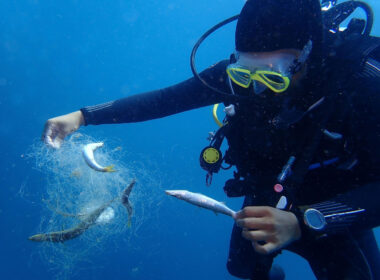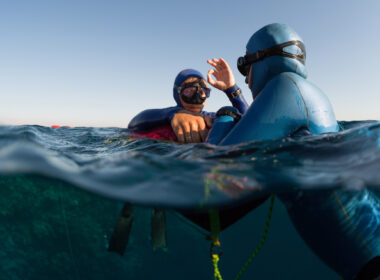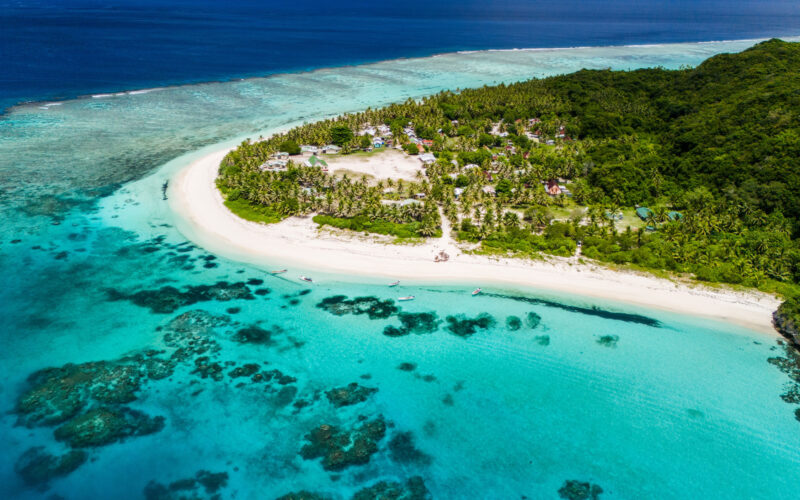Diving in Fiji is a popular activity among tourists and locals alike.
Fiji is home to some of the world’s most beautiful and diverse marine environments, with over 6500 km2 / 4,000 square miles of coral reef, hundreds of species of fish, and crystal-clear waters. In addition to traditional scuba diving, Fiji also offers unique experiences like shark diving, where divers can get up close and personal with several species of sharks, including bull sharks and tiger sharks. Another popular activity is the Sawa-i-Lau Caves dive, which takes divers through an underground network of limestone caves. Most Fiji diving operators are located in the main tourist areas, such as Nadi and the Coral Coast. They offer a range of services, from introductory dives for beginners to multi-day liveaboard trips for experienced divers. It’s important to note that Fiji’s marine environment is fragile, and divers should take care to follow responsible diving practices and respect the local marine life. Diving in Fiji can be a truly unforgettable experience, and with proper planning and precautions, it can be done safely and sustainably. Don’t let any unforeseen circumstances ruin your trip – Get trip coverage with DiveAssureFiji Marine Life
Diving in Fiji is known for its incredibly diverse marine life, with over 1,200 species of fish and 390 species of coral. The waters surrounding Fiji are teeming with a variety of marine creatures, from colorful reef fish to large pelagic species. Some of the most common types of marine life found in Fiji include:- Coral: Home to some of the most beautiful and diverse reefs in the world, these vibrant ecosystems provide shelter for everything from tiny shrimp to large sharks.
- Fish: Known for an abundance of colorful reef species like clownfish, angelfish, and butterflyfish, the waters also host pelagic favorites such as tuna, barracuda, and trevally.
- Sharks: Divers can encounter several shark species here, including bull sharks, tiger sharks, and reef sharks. Some operators even offer shark feeding dives for a thrilling yet safe encounter.
- Rays: Graceful manta rays and eagle rays are often spotted gliding effortlessly through the water near the reefs.
- Turtles: Hawksbill and green sea turtles are frequently seen grazing among the coral, adding to the region’s charm and biodiversity.
- Cephalopods: Octopuses and squid inhabit these waters as well. Though often elusive, they’re a fascinating sight when encountered on a dive.
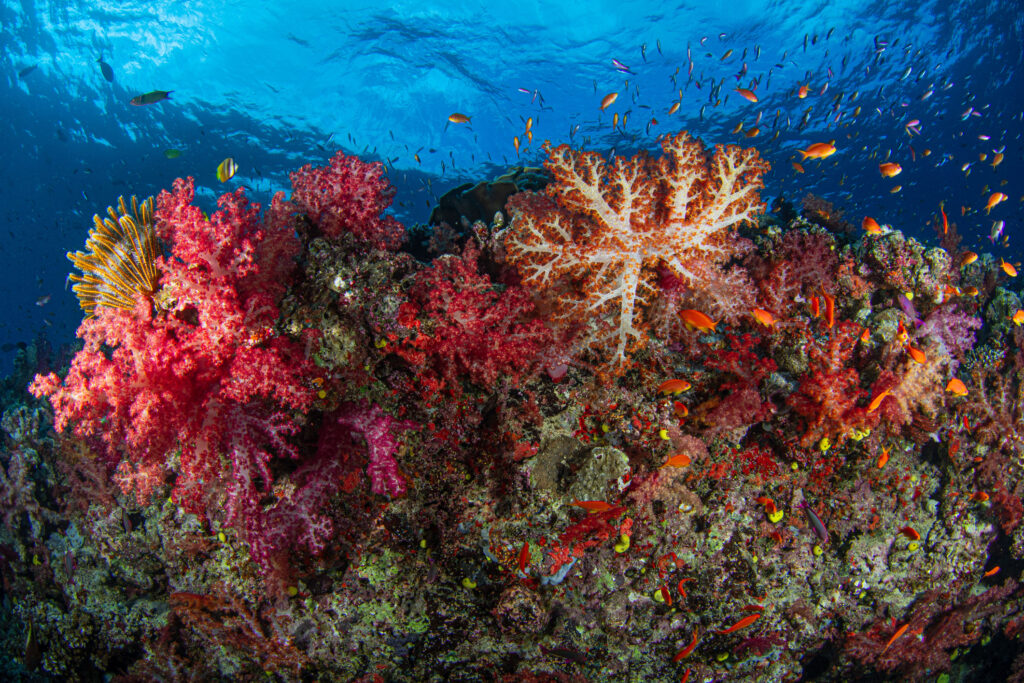
Night Diving Fiji
Night dives in Fiji offer a unique and exciting experience for divers. Many Fiji diving operators offer night dives, which allow divers to explore the underwater world after dark and observe nocturnal marine life that is not visible during the day. These include, octopus, several species of crab, lobster and shrimp, moray eels, which can be seen swimming at night, squid, nudibranch as well as bioluminescent plankton. Overall, night dives in Fiji offer a unique and memorable diving experience. With proper training and equipment, divers can safely explore the underwater world after dark and observe a fascinating array of nocturnal marine life. Check out our Tips to Staying Safe and Diving Stress Free During a Night DiveThe Good, the Strange and the Beautiful
Fiji is home to a diverse range of marine animals, including some strange and unusual creatures. One of the strangest marine animals found when diving in Fiji is the Nautilus. The Nautilus is a type of mollusc that is often referred to as a “living fossil” because it has remained virtually unchanged for over 500 million years. These ancient creatures have a unique spiral shell and are often found living in deep water around coral reefs. Nautilus are notoriously elusive, and they are rarely seen when Fiji diving. However, some Fiji diving centers offer specialized “Nautilus dives” that take divers on a quest to find these mysterious creatures. Another strange marine animal found in Fiji is the Ribbon Eel. These eels are known for their vibrant coloration, which can be jet black, electric blue or lemon yellow, sometimes even all three colors at the same time. They have an unusual behavior where they start out as males and then transition into females as they mature. Other strange marine creatures found when Fiji diving include the Leaf Scorpionfish, which has incredible camouflage abilities and can blend in with its surroundings to the point of appearing almost invisible, and the Cuttlefish, which has the ability to change its skin color and texture in order to blend in with its environment and communicate with other cuttlefish.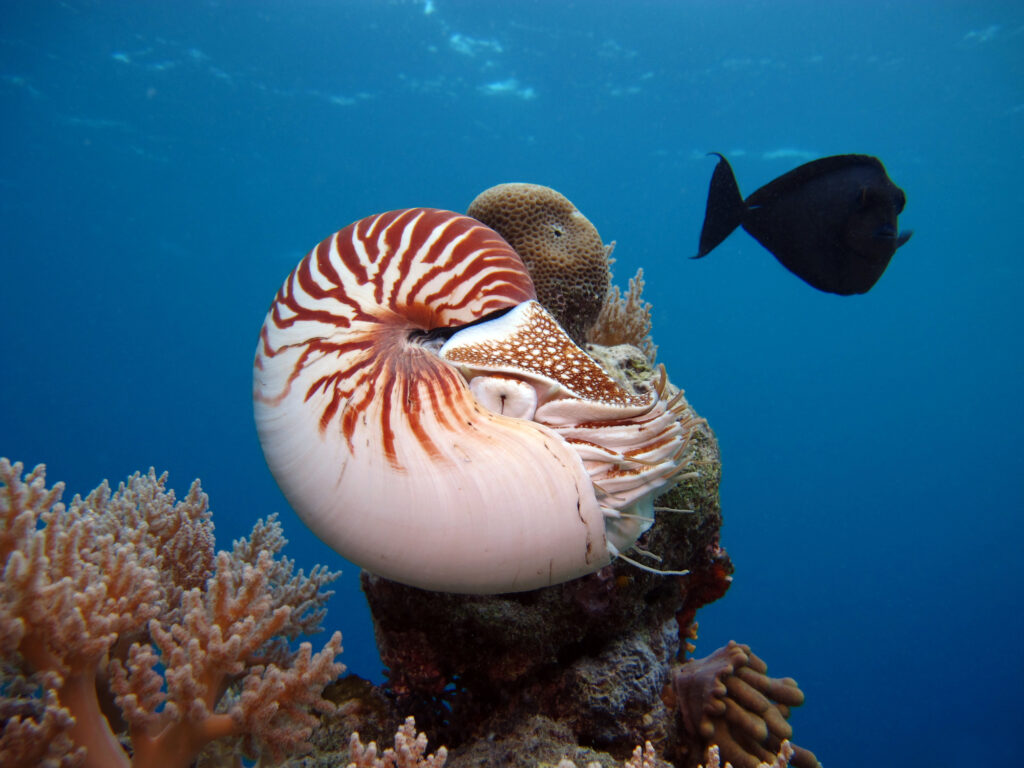
Famous Fijian Dive Sites
Fiji is home to a vast array of incredible dive sites, offering a diverse range of underwater experiences for divers of all skill levels. Some of the most famous dive spots in Fiji include:- Great Astrolabe Reef: Located off the southern coast of Viti Levu, the Great Astrolabe Reef is one of the largest coral reefs in the world. This massive reef system offers incredible diving opportunities, including drift dives, wall dives, and shark dives.
- Beqa Lagoon: Beqa Lagoon is known for its shark diving experiences, where divers can get up close and personal with several species of sharks, including bull sharks and tiger sharks. The lagoon also offers beautiful reef dives and wreck dives.
- Rainbow Reef: Located off the island of Taveuni, Rainbow Reef is known for its vibrant coral gardens, crystal-clear waters, and incredible diversity of marine life. Divers can expect to see a variety of colorful reef fish, as well as larger species like barracuda and trevally.
- Yasawa Islands: The Yasawa Islands are a group of stunning tropical islands located northwest of Viti Levu. The islands offer a range of dive sites, including colorful coral reefs, swim-throughs, and underwater caves.
- Namena Marine Reserve: Located off the coast of Vanua Levu, Namena Marine Reserve is a protected area that offers incredible diving opportunities. The reserve is home to a diverse array of marine life, including several species of sharks, rays, and turtles.
Five Must Know Fijian Words
Here are five Fijian words that might be useful to know:- Bula – This is a Fijian greeting that is similar to saying “hello” or “welcome.”
- Vinaka – This word means “thank you” in Fijian and is commonly used in everyday conversation.
- Moce – This word is used to say “goodbye” or “see you later” in Fijian.
- Viti – This is the Fijian name for Fiji, and is sometimes used interchangeably with the English name.
- Kava – Kava is a traditional Fijian drink made from the root of the kava plant. It is often consumed during ceremonies and social gatherings
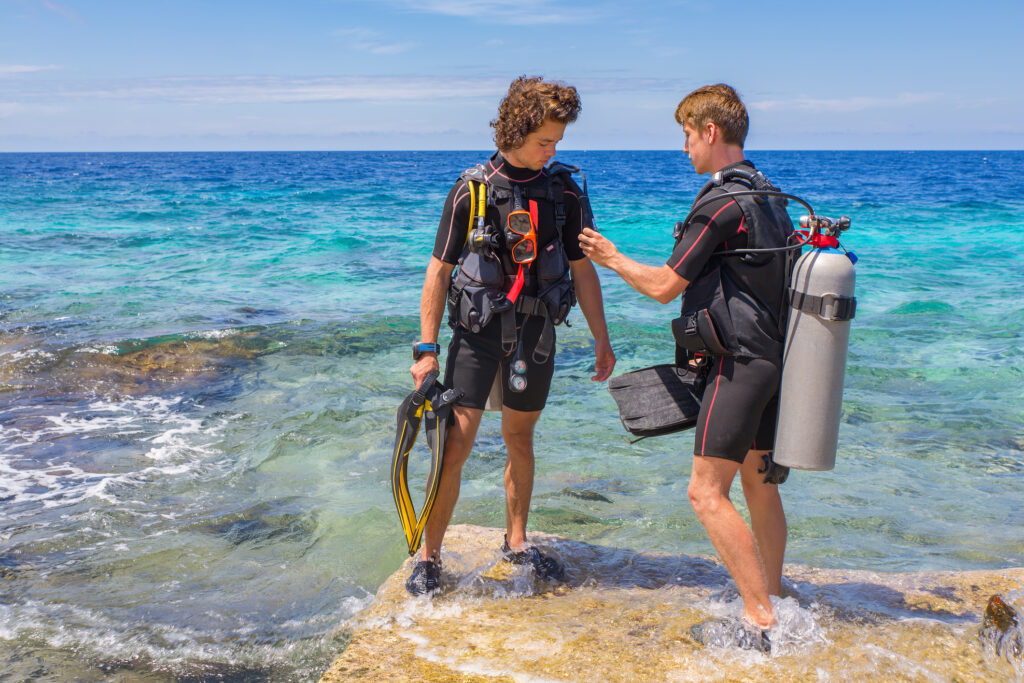
Safety in Fiji
In general Fiji is a safe country to visit, but the usual safety precautions when visiting an unfamiliar place apply. Beat the Heat: Fiji is a hot and humid country, so whether you are diving or not, it is important to stay hydrated. Did you know that the majority of cases of decompression sickness in recreational divers is due to dehydration? Make sure you are protected from the sun, where possible stay out of the sun during midday and cover up with clothing and hats. Apply a reef safe sunscreen to those areas that you can’t cover. Check out our blog: Plastic free and reef safe sunscreens – Do they exist? Respect local laws and customs: Familiarize yourself with local laws to avoid any legal issues, as well as research Fiji’s customs and traditions to show respect to the local culture. Be mindful of appropriate attire when visiting religious or traditional sites and show consideration for local customs and etiquette. Secure your belongings: Keep your valuables, such as passports, money, and electronics, secure at all times. Use hotel safes or lockboxes to store your important items, and avoid displaying wealth or expensive belongings in public. Fiji has a high property crime rate, but most incidents are forms of petty theft. Dive Safe: Ensure you dive with a reputable, certified diving center that prioritizes safety. Always check your equipment before diving. Be honest about your abilities; avoid diving beyond your comfort zone to prevent stress and incidents. Do not touch or damage corals, marine creatures, or underwater structures, and maintain a safe distance from animals, as some can be territorial or dangerous. Follow local weather advice and avoid diving in adverse conditions. Carry essential safety equipment like a surface marker buoy (SMB) or whistle for emergencies. Have a first aid kit and know how to use it. Ensure you are in good physical condition before diving or snorkeling; avoid diving if you have a cold, congestion, or respiratory or ear issues. Stay hydrated, avoid alcohol, and take regular breaks to rest and avoid fatigue. Remember! safety should be your top priority when diving and vacationing in Fiji!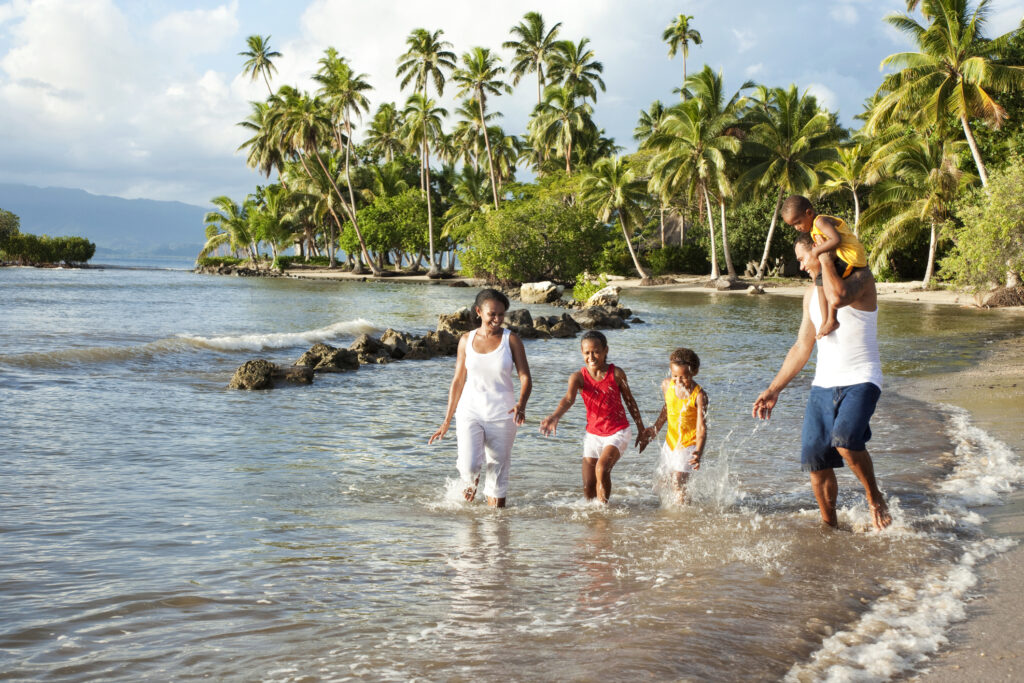
Being an Eco Tourist in Fiji
Being an eco-conscious tourist in Fiji is crucial to help preserve the stunning natural beauty and delicate ecosystems of the islands. Here are some tips to minimize your environmental impact and promote sustainable tourism:- Respect Marine Life and Coral Reefs: Avoid touching or standing on corals while snorkeling or diving. Keep a safe distance from marine creatures to prevent stress or harm.
- Reduce Plastic Waste: Minimize plastic use by bringing a reusable water bottle, cloth shopping bags, and a reusable straw. Avoid plastic bags and straws, and take plastic packaging items like shampoo bottles back home for proper disposal.
- Conserve Water: Help tackle Fiji’s water scarcity by taking shorter showers, turning off taps when not in use, and reusing towels in accommodations.
- Choose Sustainable Accommodations: Stay at eco-friendly resorts or lodges that practice energy efficiency, waste reduction, and water conservation.
- Support Local and Sustainable Businesses: Dine at restaurants serving locally sourced food, and support local farmers’ markets and artisans to reduce carbon footprints and boost the local economy.
- Explore Nature Responsibly: Stay on designated trails when hiking, follow guidelines in protected areas, and avoid collecting natural items.
- Opt for Sustainable Transportation: Use public transport, bike, or walk to reduce carbon emissions. Rent fuel-efficient or hybrid vehicles and carpool when possible.
- Educate Yourself and Others: Learn about Fiji’s environmental challenges and conservation efforts. Share this knowledge with fellow travelers to encourage mindful practices.



